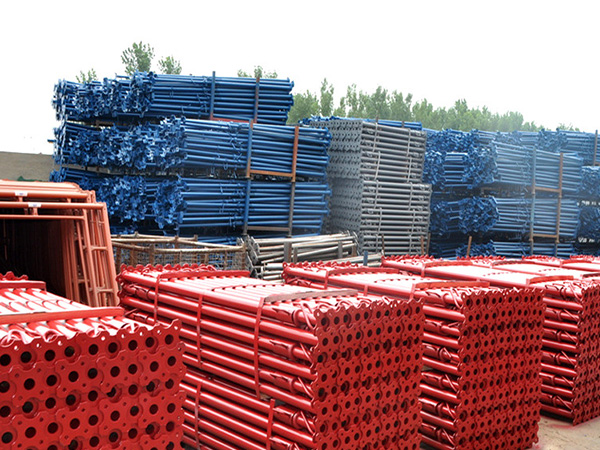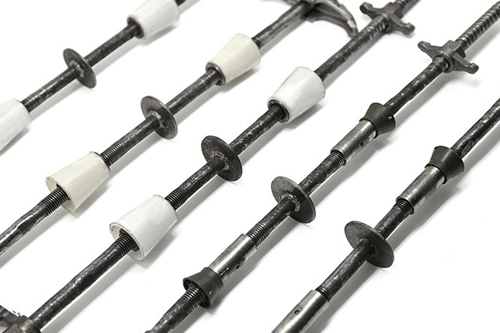- Site Navigation -

Adjustable Steel Prop
The Adjustable Steel Prop,also known as telescopic steel prop or adjustable steel shore,is a versatile vertical load-bearing component widely used in construction,designed for tempo......
The Adjustable Steel Prop,also known as telescopic steel prop or adjustable steel shore,is a versatile vertical load-bearing component widely used in construction,designed for temporary support in formwork systems,scaffold reinforcement,and structural bracing.Its core advantage lies in telescopic height adjustment,allowing it to adapt to different construction heights(typically 1.5m-4.5m)while providing stable vertical load-bearing,making it indispensable for ensuring structural safety during concrete pouring,beam/slab installation,and maintenance work.
Core Structure
It features a two-section telescopic design optimized for"adjustability"and"load resistance":
Outer Tube:A thick-walled seamless steel tube(Q235/Q355 material,diameterΦ60-Φ89mm,wall thickness 3.5-5mm)serving as the main load-bearing body,with evenly spaced adjustment holes along its length.
Inner Tube:A smaller-diameter steel tube(Φ48-Φ76mm)sliding inside the outer tube,with a top plate(100×100mm square steel plate,thickness≥6mm)welded at the top to bear formwork or structural loads.
Locking Mechanism:A spring-loaded pin or bolt passing through aligned holes in the inner and outer tubes to fix the adjusted height,ensuring no slippage under load;some heavy-duty models add a locking nut for double safety.
Base Plate:A circular/steel plate(diameter/side length≥150mm,thickness≥5mm)at the bottom of the outer tube,increasing ground contact area to prevent sinking into soft substrates.
Classification&Specifications
By Load Capacity:Standard type(≤20kN),medium-duty(20-35kN),and heavy-duty(≥35kN)for large-span beams or prefabricated component support.
By Height Range:Short props(1.5-2.5m)for low-rise floors,medium props(2.5-3.5m)for standard buildings,and long props(3.5-4.5m)for high-formwork or industrial workshops.
Key Parameters:Telescopic stroke(300-800mm),top plate flatness error(≤1mm),and verticality deviation(≤1°after installation).
Typical Applications
Formwork Support:Used as auxiliary support for beam,slab,or column formwork,supplementing scaffold columns to distribute concentrated loads and prevent formwork deformation.
Structural Bracing:Temporary bracing for prefabricated concrete walls,steel beams,or trusses during installation,ensuring alignment before permanent fastening.
Scaffold Reinforcement:Added to high scaffold systems(height>8m)at intervals to enhance vertical stability and resist lateral wind loads.
Maintenance Work:Used in building renovation or bridge repair to support ceilings,floors,or aging structures during component replacement.
Usage&Safety Rules
Match Load Requirements:Select the appropriate type based on calculated loads(concrete weight+construction live loads);never overload(e.g.,using a 20kN prop for 30kN loads).
Secure Locking:After adjusting height,ensure the locking pin/bolt fully inserts into holes and the nut is tightened;recheck after 30 minutes of initial loading.
Stable Base:Install on flat,solid ground;use a steel pad(≥200×200mm)on soft ground to avoid base sinking.
Avoid Eccentric Loads:Ensure the top plate is fully in contact with the supported object;do not apply lateral or inclined loads,which may cause bending.
Regular Inspection:Check for tube cracks,bent inner/outer tubes,or worn locking parts before use;discard damaged props immediately—welding or repairing is prohibited.








